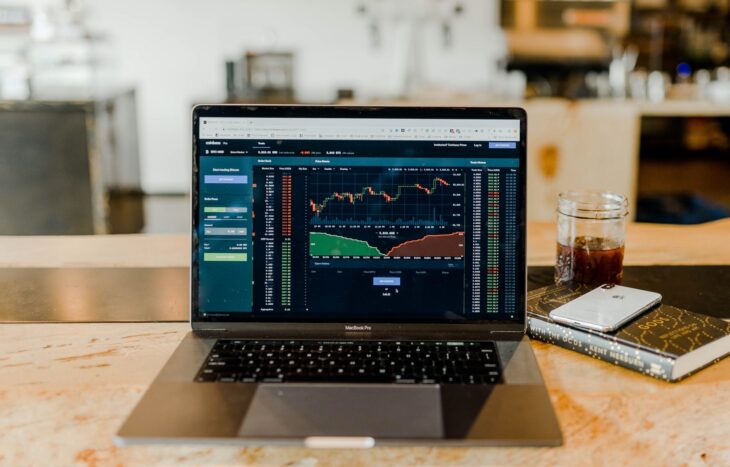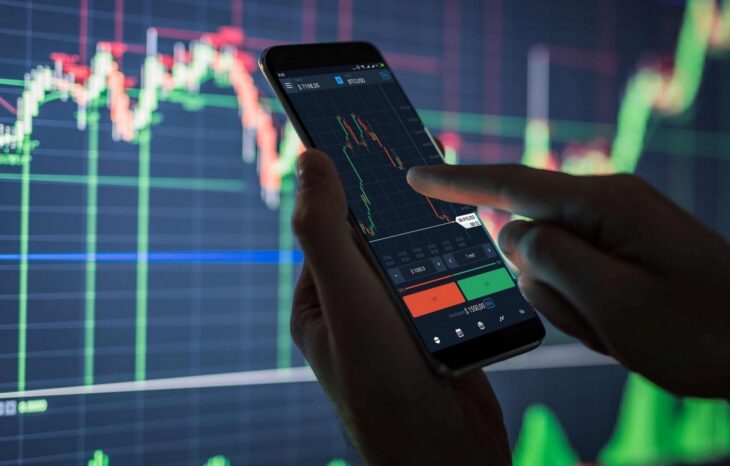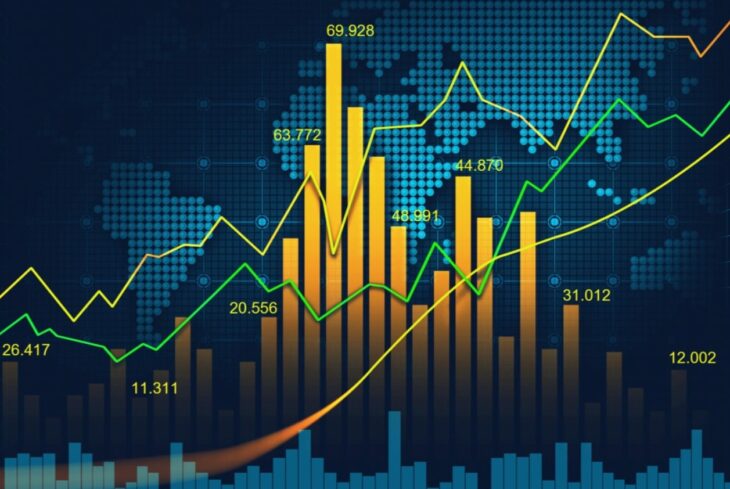Trading and any other financial transactions on the exchange (any type of exchange), short or long term transactions, always involve risk. It means that you can both make money on speculation or increased prices of purchased assets as well as you can lose your investment.
It is almost impossible to calculate accurately the probability of earning or losing, therefore this type of financial transactions is characterized by high risk. Traders usually use a variety of tools and information sources to reduce this risk, to identify market trends and to increase the chances of potentially profitable investments.
Attention! If you do not have skills in trading or stock investing, do not invest your money in stock transactions. If you have the skills and experience, invest only the amount that you can afford to lose without reducing your personal budget critically.
Contents
Official websites of brokers

Source: Bit Rebels
It is impossible to engage in stock exchange activity without a professional intermediary – a brokerage company.
At the moment, hundreds of different organizations operate on the brokerage services market. They differ not only in the quality of client service and the size of commissions for their services but in the level of reliability and security for client finances.
Therefore, choosing a broker for further work on the currency or stock exchange should be extremely careful, taking into account a set of factors and criteria. Otherwise, you risk increasing the chances of losing capital or even contacting scammers.
First, a potential trader should devote time to independently analyzing available brokerage offers. All information found about brokers must be double-checked in independent sources and state registries. It is important because the amount of fake information and fake licenses is really high.
We are talking about brokerage licenses, permits for financial and stock activities in a particular country, about the terms of cooperation, the amount of commission fees, spreads, and even guarantees of broadcasting 100% truthful exchange signals.
Brokers’ ratings

Source: Entrepreneur
Independent rating services will provide some help in choosing a good broker. To begin with, you can find international agencies that evaluate brokers according to their own rating system. As a rule, only accredited and licensed from central banks and financial regulators brokers are represented in those agency ratings.
There are also independent sites that collect up-to-date information about popular and just-registered brokers. Usually you can find information about the term of the broker’s website, the place of its legal registration, requirements for deposits, the size of the spread and other commissions on the pages of such ‘rating services’. One of the sites with ratings and reviews of brokerage companies is tradersunion.com.
The key benefit of independent ranked services is the ability to read professional reviews and user comments. Despite the likelihood of advertising reviews, you can learn about the advantages and possible disadvantages of a particular company, learn how it treats traders, how it resolves conflict situations, where it keep client’s deposits and so on.
Pay attention to the blacklists. Such lists include scammers who pretend to be brokers, as well as companies with a low level of customer service. If the broker you are interested in is on the black list of some rating service, this should alert you.
Sources of information for market analysis

Source: Forex EU
It is impossible to conclude deals or invest in exchange assets in order to make a long-term profit without preliminary analysis of market trends. Otherwise, trading turns into a gamble, and the chances of losing your investment in perspective are close to 100% in such a case.
Traders usually use two different approaches to observe the market and identify trends: fundamental analysis and technical analysis. Trusted sources of information are needed for analysis in both cases.
If we are talking about fundamental analysis, which is based on the news background, then we need current news and expert forecasts. Specific sources of information depend on the chosen area of exchange activity. It can be mass media, social media sites, specialized news portals of financial, banking, stock topics or even politics rumors.
For technical analysis, specialists use statistical data and various quote charts. They can usually be found on the pages of specialized services and mobile applications. However, it is worth paying extra attention to the relevance and veracity of the transmitted data in the mentioned sources. The decisions you make and the level of your deposit depend on this.
Expert reviews and forecasts

Source: TradersDNA
You must develop your own trading or investment strategy and stick to it. Of course it may take some time and money to figure out what strategy suits you.
On the other hand, you can glean a lot of useful information in analytical articles and forecasts that are published in the public domain by experts and other traders.
Believe or not believe these materials – you decide. However, in such articles you can find useful thoughts that will probably draw your attention to the necessary factors and nuances.
Additionally, a trader can use information found on forums and social networks. Of course, no one will share potentially useful information disinterestedly, but as with expert reviews, you can find smart thoughts in comments and live communication.
Information for professional development

Source: forbes
Trading and investing is not for everyone. It is necessary to have capital, to understand the intricacies of the exchange and the market, to have risk management skills but also to spend hours and hours analyzing information, studying and developing your skills.
You need to constantly improve your knowledge, gain experience, study theory and practice. There is no magic button or smart software that will make money autonomously.
There are enough sources for advanced training in the field of trading – these are thematic blogs, and auxiliary materials on the websites of the brokers themselves, and various articles in the public domain.
If someone asks money for information, do not rush to spend several hundred dollars on “magic methods of guaranteed income.” Such slogans are often used by scammers with useless advice. Be skeptical and rational about spending your money on training and paid trading courses.
